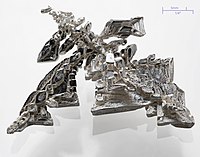
The effect of inorganic salt in wastewater on the viscosity of coal water slurry
Sign Up to like & getrecommendations! Published in 2019 at "Environmental Science and Pollution Research"
DOI: 10.1007/s11356-019-04776-0
Abstract: The preparation of coal water slurry (CWS) using wastewater, which contains inorganic and organic components, is one method of wastewater utilization. In this study, the effect of inorganic salts on the viscosity of CWS was… read more here.
Keywords: viscosity; salt; water; effect ... See more keywords

Review: recent developments of substrates for nitrogen and phosphorus removal in CWs treating municipal wastewater
Sign Up to like & getrecommendations! Published in 2020 at "Environmental Science and Pollution Research"
DOI: 10.1007/s11356-020-08808-y
Abstract: Substrates are the main factor influencing the performance of constructed wetlands (CWs), and especially play an important role in enhancing the removal of nitrogen and phosphorus from CWs. In the recent 10 years, based on the… read more here.
Keywords: nitrogen phosphorus; cws; removal efficiency; phosphorus ... See more keywords

Control of corrosive bacterial community by bronopol in industrial water system
Sign Up to like & getrecommendations! Published in 2018 at "3 Biotech"
DOI: 10.1007/s13205-017-1071-4
Abstract: Ten aerobic corrosive bacterial strains were isolated from a cooling tower water system (CWS) which were identified based on the biochemical characterization and 16S rRNA gene sequencing. Out of them, dominant corrosion-causing bacteria, namely, Bacillus… read more here.
Keywords: system; corrosive bacterial; water system; corrosion ... See more keywords

Simultaneous elimination of antibiotics resistance genes and dissolved organic matter in treatment wetlands: Characteristics and associated relationship
Sign Up to like & getrecommendations! Published in 2021 at "Chemical Engineering Journal"
DOI: 10.1016/j.cej.2021.128966
Abstract: Abstract Constructed wetlands (CWs) are widely used for treating swine wastewater containing antibiotic resistance genes (ARGs). However, the relation between ARGs removal and dissolved organic matter (DOM) characteristics in CWs remains unknown. This study aimed… read more here.
Keywords: cws; removal; biochar; elimination ... See more keywords

Bio-clogging mitigation in vertical subsurface flow constructed wetlands using rhamnolipids-citric acid compound
Sign Up to like & getrecommendations! Published in 2021 at "Chemical Engineering Journal"
DOI: 10.1016/j.cej.2021.131278
Abstract: Abstract Sustainable operation of constructed wetlands (CWs) is challenging due to bio-clogging caused by the excessive aggregation of extracellular polymeric substances (EPS) in substrate interspaces. In this study, rhamnolipids (RLs) and citric acid (CA) were… read more here.
Keywords: bio clogging; cws; constructed wetlands; bio ... See more keywords

Enhanced removal of Microcystis bloom and microcystin-LR using microcosm constructed wetlands with bioaugmentation of degrading bacteria.
Sign Up to like & getrecommendations! Published in 2018 at "Chemosphere"
DOI: 10.1016/j.chemosphere.2018.06.140
Abstract: The prevalence of cyanobacterial bloom (Cyano-bloom) and hepatotoxic microcystin (MC) pollution caused by eutrophication poses serious problems to aquatic ecosystems and public health. However, conventional water treatment technologies are inefficient for removing cyanotoxins. In this… read more here.
Keywords: bioaugmentation; microcystin; bloom; cws ... See more keywords

Removal and fate of silver nanoparticles in lab-scale vertical flow constructed wetland.
Sign Up to like & getrecommendations! Published in 2019 at "Chemosphere"
DOI: 10.1016/j.chemosphere.2018.09.110
Abstract: Engineered nanomaterials (ENMs) are increasingly produced and consequently released into the environment. Therefore, there is a strong need to find a valid way to treat the ENMs pollution. In this study, the removal efficiencies of… read more here.
Keywords: silver nanoparticles; scale vertical; vertical flow; flow constructed ... See more keywords

Influence of application of manganese ore in constructed wetlands on the mechanisms and improvement of nitrogen and phosphorus removal.
Sign Up to like & getrecommendations! Published in 2019 at "Ecotoxicology and environmental safety"
DOI: 10.1016/j.ecoenv.2018.12.024
Abstract: Vertical up-flow constructed wetlands (CWs) with manganese ore (Mn ore) as media (M-CWs) were developed to treat simulated polluted river water. The results showed that the average removal efficiencies for NH4-N, NO3-N, TN and TP… read more here.
Keywords: influence application; application manganese; phosphorus; manganese ore ... See more keywords

Greenhouse gas emissions from constructed wetlands are mitigated by biochar substrates and distinctly affected by tidal flow and intermittent aeration modes.
Sign Up to like & getrecommendations! Published in 2020 at "Environmental pollution"
DOI: 10.1016/j.envpol.2020.116328
Abstract: Biochar substrates and tidal flow (TF) and intermittent aeration (IA) operation modes have recently been applied to improve the treatment performance of constructed wetlands (CWs), but their roles in regulating greenhouse gas (GHG) emissions from… read more here.
Keywords: aeration; cws; tidal flow; biochar substrates ... See more keywords

Enhancement of slurryability and heating value of coal water slurry (CWS) by torrefaction treatment of low rank coal (LRC)
Sign Up to like & getrecommendations! Published in 2017 at "Fuel"
DOI: 10.1016/j.fuel.2017.03.016
Abstract: Abstract To improve cold gas efficiency of entrained-flow gasification, coal water slurry (CWS) as a fuel must have high heating value at low viscosity. Especially, considering unstable supply of bituminous coal, the preparation of CWS… read more here.
Keywords: low rank; cws; heating value; rank coal ... See more keywords

Evaluation of solid waste stratified mixtures as constructed wetland fillers under different operation modes
Sign Up to like & getrecommendations! Published in 2020 at "Journal of Cleaner Production"
DOI: 10.1016/j.jclepro.2020.119986
Abstract: Abstract Based on the strategy that all processes can and should be modified to contribute to a circular economy, this work evaluates the recovery of waste solids as filler material in Constructed Wetlands (CWs) used… read more here.
Keywords: waste solids; waste; cws; wastewater ... See more keywords